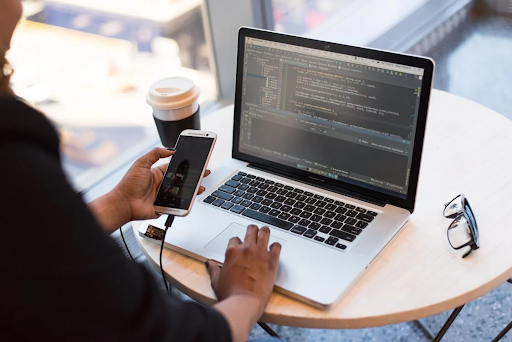Global events and the increasing uptake of digital technologies have made remote work arrangements the standard. The COVID-19 epidemic acted as a catalyst, accelerating this change and forcing employers and workers to swiftly implement remote work policies.
Before its onset, only 17% of U.S. employees had the luxury of working from home five or more days each week. But since its outbreak, this figure has substantially increased to 44%, highlighting external forces’ profound effect on altering work dynamics while reinforcing growing acceptance and prevalence.
Time tracking has become more crucial as companies and employees adjust to this new reality of modern work. In this blog post, we will examine how the remote work landscape is changing from the perspective of time tracking.
Challenges of Remote Time Tracking
Navigating the complexities of remote time tracking poses unique challenges, despite the myriad benefits of remote work. Conventional methods such as punch cards and manual timesheets prove inadequate in dispersed remote environments, where employees operate across various time zones and adhere to flexible schedules.
Additionally, companies grapple with the accurate tracking of billable hours and ensuring accountability amid the decentralized nature of remote work arrangements. Addressing these challenges requires innovative solutions that accommodate the diverse needs and dynamic nature of remote workforces while maintaining transparency and efficiency in time-tracking practices.
Trends in Time Tracking
Remote Work Software
A new era of advanced time-tracking systems tailored to the needs of remote work environments has been brought about by the rapid improvements in technology. The sophisticated automated tools and real-time monitoring capabilities seen in today’s remote work software solutions are becoming more and more common in the context of remote work.
In addition to making monitoring hours worked easier, these state-of-the-art solutions enable employers to accurately track employees’ activities during working hours. Additionally, they give employers priceless insights into productivity levels, facilitating resource allocation and decision-making that is well-informed. Organizations may improve accountability, streamline remote work processes, and increase production to unprecedented levels by utilizing technology.
Integration With Productivity Tools
Image source: Pexels
Integration between time-tracking software and other productivity tools, such as project management platforms and communication software, has become increasingly prevalent in remote time tracking. Not only does it make time tracking simpler for specific tasks or projects, but it can also streamline workflow management by eliminating manual data entry requirements.
This connection offers a thorough perspective of worker workload and progress in relation to larger project schedules and communication channels, which improves productivity and openness in remote work settings. Additionally, it encourages teamwork and accountability, enabling organizations to maximize project results and resource allocation while reducing administrative workloads.
Focus on Work-Life Balance
The shift to remote work makes it more difficult to distinguish between work and personal obligations, underscoring the significance of keeping a positive work-life balance. Time monitoring software is a useful tool that employees may use to set clear limits and set aside specific time for work-related tasks as well as personal interests.
These technologies help employees manage their time more efficiently, which raises job satisfaction and general well-being. They also help people integrate work and personal lives more harmoniously and reduce the danger of burnout in remote work environments.
Real-Time Monitoring
Some time-tracking systems provide real-time monitoring capabilities that let businesses see the activity levels of their employees right away. Although this kind of feature can be helpful in terms of increasing output and guaranteeing workflow effectiveness, it also raises issues related to trust and privacy in the context of remote work.
Fostering a healthy and mutually beneficial remote work environment where openness and accountability coexist with respect for individual boundaries and trust requires striking a balance between the advantages of real-time monitoring and the necessity to respect employees’ autonomy and privacy rights. Achieving this balance guarantees that time-tracking devices function as helpful tools to boost output without undermining the integrity of the employer-employee relationship.
Predictions for the Future
Image source: Pexels
When it comes to the future of time tracking in remote work settings, a few significant predictions can be made.
First, we should anticipate greater developments in automation and data analytics, which will help companies better understand the productivity trends of their workforce and make more educated decisions. Furthermore, the potential for time-tracking software to become even more seamlessly and unobtrusively incorporated into employees’ daily lives through wearable technology integration is promising.
Final Thoughts
The development of time-tracking techniques and technology will have a significant impact on remote work in the future. Organizations can guarantee that remote work stays productive, sustainable, and satisfying for years to come by embracing technological improvements and placing a high priority on employee well-being and flexibility. One thing is certain as we navigate this new era of work: efficient time monitoring will remain vital in determining how remote work develops in the future.


